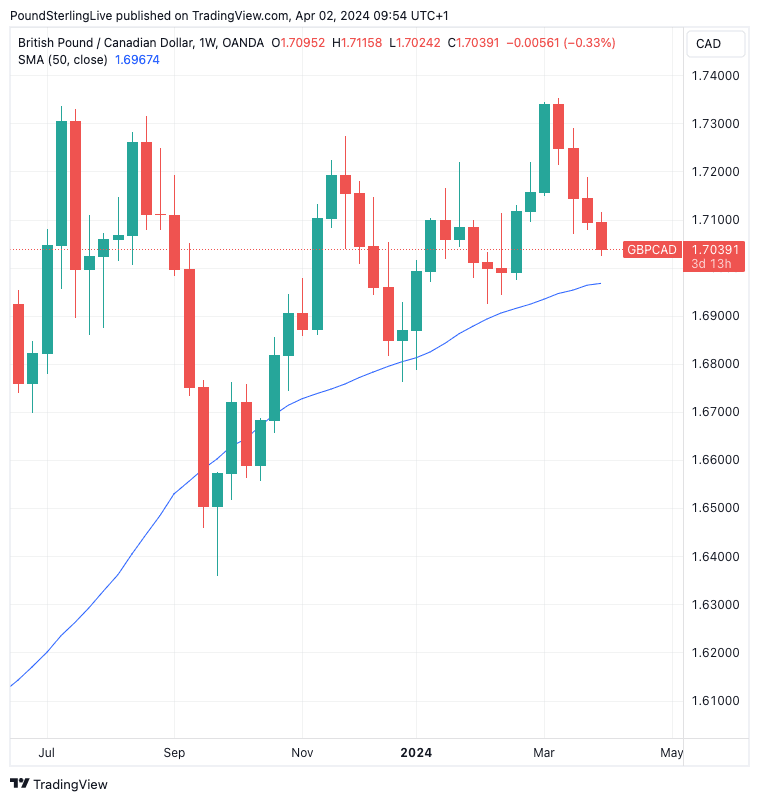Flipping Negative Amidst Strong Oil Prices and U.S. Data Pulse


Image © Adobe Images
There is a definite feel in the air that the Pound’s outlook against the Canadian Dollar has flipped to the downside amidst strengthening U.S. data and rising oil prices.
The Pound to Canadian Dollar exchange rate (GBPCAD) has now fallen for three consecutive weeks, and Monday’s 0.33% decline sets up a very real prospect that we will see a fourth weekly close on the red.
What is abundantly clear is the Canadian Dollar continues to trade as a ‘mini’ U.S. Dollar, with the smaller North American currency tracking its larger cousin from down south.
CAD saw widespread gains as it tracked the USD higher in the wake of an above-consensus manufacturing PMI print released by the ISM on Monday, which signalled to markets the U.S. economy was picking up a head of steam.
This lowers the odds of a mid-year rate cut at the Federal Reserve, which in turn boosts the U.S. Dollar. But because the U.S. and Canadian economies are so intertwined, markets are betting this means the odds of a rate cut at the Bank of Canada are also receding.
If the Dollar has another positive week, which we expect, the Canadian Dollar will also benefit. Like the GBP/USD exchange rate, GBP/CAD is looking distinctively heavier, with technical indicators rolling over to the downside.
Our preferred downside target is the 50-week moving average, currently located at 1.6967, where we would anticipate selling pressures to ease.
Above: GBP/CAD at weekly intervals with the 50-week MA shown. Track GBP/CAD with your own custom rate alerts. Set Up Here
In addition to the firm U.S. data pulse, oil prices will be adding additional layers of support beneath the Canadian Dollar.
Ricardo Evangelista, Senior Analyst at ActivTrade, says brent oil prices surged and hit a multi-month peak during early Tuesday trading.
“The price of the barrel reached its highest level since October 2023, fuelled by the market’s optimism about an improved global economic outlook, which signals heightened demand. Simultaneously, escalating geopolitical tensions in the Middle East have spurred concerns over supply,” he explains.
Oil is one of Canada’s key foreign exchange earners and ongoing rises in oil prices can boost the country’s terms of trade, thereby offering CAD support.
“Oil prices trade near five-month highs as geopolitical tensions remain rampant after an Israeli airstrike on Iran’s embassy compound in Syria killed a top military commander, and after Mexico said it would temporarily halt exports. The OPEC+ JMMC meeting on Wednesday will likely reaffirm its current tight supply policy,” says a note from Saxo Bank.
Evangelista warns that should this conflict intensify global crude supply chains could be further disrupted.
Source link







